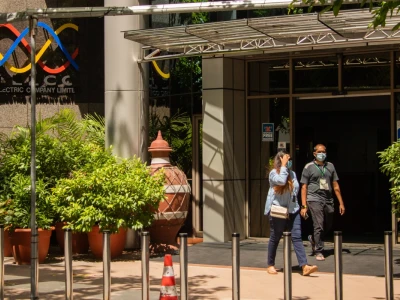
Targeted subsidy policy has new govt's backing, finance ministry says
The government in the 2024 budget has proposed to change the existing blanket subsidy policy to provide targeted subsidies only to those in need from July 2024.
The incoming government has backed the the incumbent government's proposal to change the existing blanket subsidy policy to provide targeted subsidies only to those in need from July 2024, finance ministry said Tuesday.
According to the proposed MVR 49.5 billion budget for 2024, which was sent to the parliament on Tuesday, MVR 2.2 billion has been budgeted for the change in subsidy policy. If the subsidies are rationalised, the subsidy costs will reach MVR 3.4 billion next year.
According to the budget booklet, indirect subsidies will be phased out next year. The biggest measure planned to reduce government spending is the changes in the way the social security system provides assistance and subsidies.
Chief Financial Budget Executive Ahmed Saruvash Adam told reporters at a press conference that the government has shared the changes and policies it wants to bring in next year's budget with the transitional committee formed specifically for the budget.
One of the most important measures is to replace the indirect blanket subsidies with direct or targeted subsidies.
“The budget was presented to both President Ibrahim Mohamed Solih and President-elect Dr Mohamed Muizzu... The transition committee has given the blessing to carry out the fiscal strategy,” Saruvash said.
The budget proposes to abolish the current indirect subsidies on electricity, fuel, staple foods and sewerage services from July 2024.
MVR 600 million has been budgeted to provide a targeted basic income instead.
Noting that the abolition of indirect subsidies would lead to an increase in poverty rates, Saruvash said the targeted basic income is a step towards minimising the impact.
"If something that is being subsidised so much and when it is suddenly turned into a market-determined thing, poverty rates will increase. It will not be easy for all households. Therefore, the targeted basic income has been set so that 65% of the population will benefit," he said.
The current plan and proposal to provide targeted basic income, he said:
-
Subsidies will be given to 65% of the population or 50% of households
-
The richest 35% of the population, foreigners, resorts and businesses will not receive the subsidy
The change is expected to push up commodity prices and inflation to 3.9%, Saruvash said, adding that it would be a one-off impact.
"Whenever we do it, it will lead to inflation. We can't do this without inflation. Whatever happens, [inflation] is a cost we have to pay, but once," he said.
"These changes will cost MVR 600 million. However, we can save a net amount of MVR 2.5 billion."




